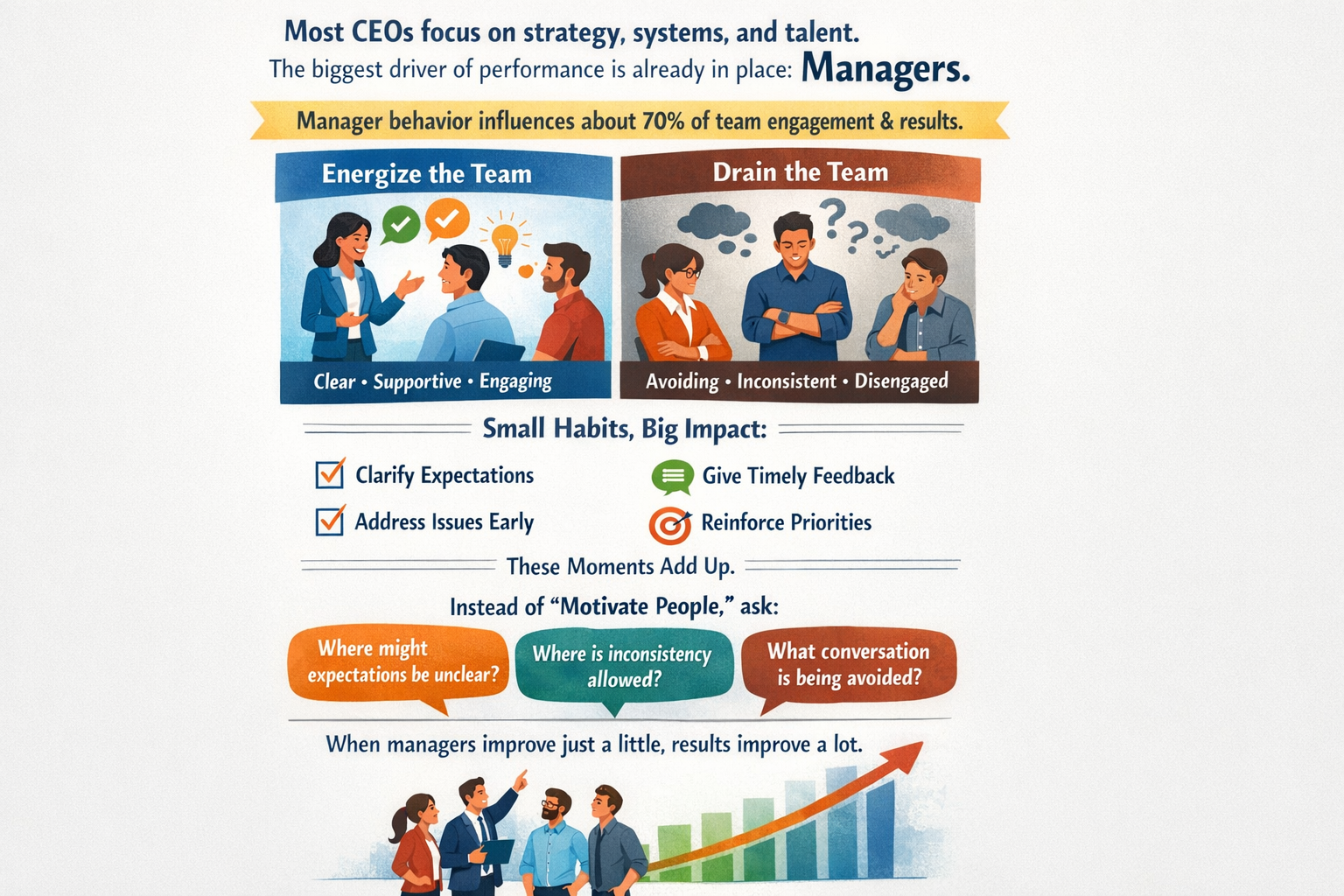Emotional Intelligence is a Game-Changer

Emotional intelligence (EQ) has increasingly become recognized as a crucial trait for effective leadership. EQ is more important than IQ for managing our emotions well when we are disappointed with staff or challenges within the company or the business environment. EQ is also essential for noticing and appropriately responding to the emotions of the people around us. The ability to respond to emotions well is critical in building trust, fostering collaboration, and driving team and individual success within the organization.
Here are five reasons why emotional intelligence is a game-changer for leaders:
- Building Strong Relationships: Leaders with high EQ empathize and understand the perspectives of others, fostering trust and open communication.
- Effective Communication: Leaders with high EQ can express themselves clearly as well as listen and respond appropriately to others, reducing misunderstanding and conflicts.
- Conflict Resolution: Leaders with high EQ can remain calm in difficult situations and facilitate the development of mutually beneficial solutions.
- Inspiring and Motivating Others: Leaders with high EQ acknowledge others’ contributions and inspire them to make valuable contributions to the organization’s purpose.
- Decision-Making: Leaders with high EQ consider both logical and emotional factors when making decisions, resulting in decisions that align with both the organization’s and the team members’ interests.
By developing their emotional intelligence, leaders can create a positive work culture, increase retention, improve productivity, and strengthen the bottom line. In other words, leaders with high EQ improve employee satisfaction and the organization's ROI.
What is one skill you could strengthen to improve your EQ and the positive impact of your leadership?


